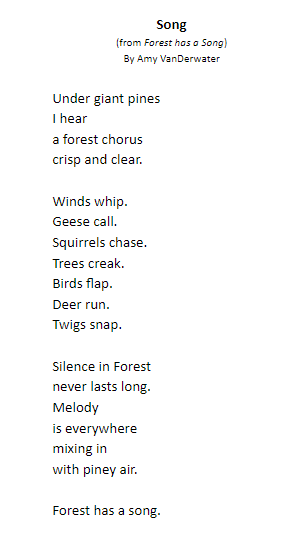A Final Poetry Post
- Lily Moore
- Apr 7, 2021
- 3 min read
If you had asked me at the beginning of this semester about my feelings towards poetry, it would have been pretty much the opposite of how I feel about it now. If you had told me that my future self would actually enjoy writing poetry and begin to use it as away to process, I would have thought you were nuts! But here I am, bewildered that my present self enjoys poetry far more than my past self could ever imagined. This being the final week of my blog posts for this semester, I have three poems to share with you this week.
One of my poems that I did in my writer's notebook this week is based on math poems found in Thanku: Poems of Gratitude by Miranda Paul and Textbook by Amy Krouse Rosenthal. I read math equation poems for the first time almost a month ago when reading Textbook, but didn't feel the desire to try it, until I saw the style for a second time in Thanku. I had so many little thoughts and ideas from getting to come home and spend time with my family for Easter and other exciting things, like my best friend finding her wedding dress, the disgusting amount of pollen in the air, and my sweet aging dog. I was able to quickly create a time capsule of the memories from the weekend by creating math equation poems. Maybe I'll go back later and elaborate, but for now I am content with my equations.
My next poem was a sound poem after Amy VanDerwaters' poem Song. I was just sitting on the couch in my parents house, the house I used to grow up in, is it still my house? I don't know, but either way, I was sitting on the couch with the dog, Roxy, just soaking in the sounds of my childhood home. At first I was not impressed by what I heard. But, the longer I listened the more sounds I found. My sister turned on the dryer, I heard her footsteps softened by the carpet in the hallway. There would be lots of sounds all at once, making the house reach a forte sound level, and later return back to piano soft. Like a symphony all the sounds in my house crescendo and decrescendo sometimes in sync, sometimes out of sync with each other.
For my third poem, I used the scaffold from Mentor Texts, "What do the trees know?". There were a lot of directions I could have taken this poem. I feel like there are so many answers to that question, that I could have made at least five different versions of this poem all with a different tone and approach to the question, "What do the trees know?". I could have focused on nature or been witty and wrote about how they hear each other fall in the forest when no one else is around, but I'm feeling some stress, so the answer to the question "What do the trees know?" ended up being that they know my worries. They are experts on change, they do it every year several times a year.

With all the unknowns in my near future, poems have become a form of refuge and release for the anxiety and pressures I feel about the future. I'm thankful for the outlet poem writing has become, I never expected for this to become an outlet for me. Typically my outlets for stress involve dancing, rope swings, and jumping off waterfalls. The poetry is more grounding though and can be done at almost any time. It also enables me to look back and see how I have grown, changed, and how my life has worked out. It provides a great opportunity for reflection. I look forward to sharing what poetry has done for me with my future students and hope they will find refuge from the unknowns and uncertainties of life in their poems and the poems of others.
Meet the Editor and Illustrator of Thanku: Poems of Gratitude


This is Miranda Paul, the editor of the anthology Thanku: Poems of Gratitude.

This is Marlena Myles, the illustrator of Thanku: Poems of Gratitude.











Comments